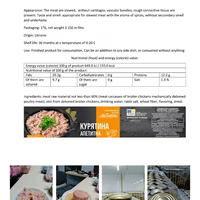Hungary, located in Central Europe, has a diversified and increasingly modern economy. Over the years, it has transformed from a post-socialist economy to a more market-driven system, with a focus on sectors like automotive manufacturing, pharmaceuticals, IT, and electronics. Hungary is part of the European Union (EU) and thus benefits from the trade agreements and frameworks set by the EU, which has boosted its integration into the global economy. The country’s stable economic environment, strategic location, and well-developed infrastructure make it an attractive trade partner in Europe, especially for countries in the Middle East and West Asia looking to access the broader EU market.
In terms of its financial and commercial system, Hungary maintains a favorable business environment with relatively low corporate taxes and several incentives for foreign direct investment. The banking sector is modern and well-regulated, providing essential financial services to businesses, including access to capital for investment and trade financing. Hungary`s exports are largely centered around high-value products, such as machinery, vehicles, and medical equipment, while its imports include raw materials, fuels, and consumer goods. The nation benefits from trade agreements as an EU member, which opens up opportunities for international partnerships and facilitates easier trade conditions with non-EU countries.
When it comes to trade relations with the Middle East and West Asia, Hungary has increasingly looked to strengthen ties with these regions. Several Middle Eastern countries, particularly the Gulf states, have recognized Hungary as a key gateway to the European market, while Hungary seeks to diversify its trade relations outside of the EU. Hungary exports goods such as machinery, technology, pharmaceuticals, and food products to countries in the Middle East and West Asia, while importing raw materials like oil and chemicals. Bilateral trade agreements and partnerships have been steadily growing, with an increasing emphasis on sectors like energy, construction, and agriculture.
Hungary’s strategic interest in building stronger ties with countries in the Middle East and West Asia is also reflected in its involvement in global trade forums and diplomatic efforts to foster better economic cooperation. This growing economic diplomacy has led to increased foreign investment in Hungary from these regions, particularly in sectors like real estate, logistics, and energy. Furthermore, initiatives aimed at enhancing cultural and economic exchanges, such as joint business councils and trade delegations, have helped in solidifying Hungary`s role as a key economic partner for Middle Eastern and West Asian countries.
-
 Gmk World Trade S.R.O. 3 months ago
Gmk World Trade S.R.O. 3 months ago None
Halal Chicken & Parts & Canned Meats
None
Halal Chicken & Parts & Canned Meats
\`Welcome to halalchickenmeat, where we provide high-quality, certified halal chicken products to our customers, ensuring the highest standards of qua...